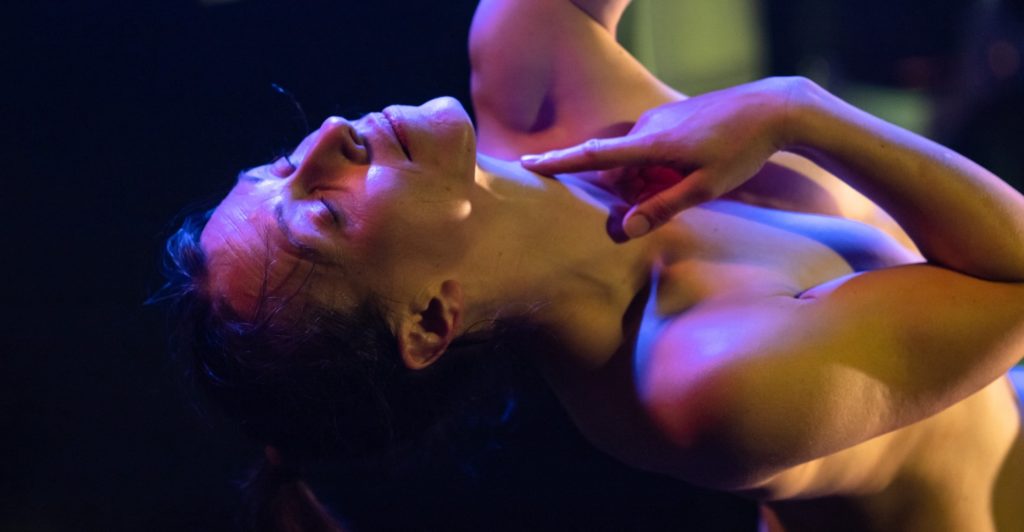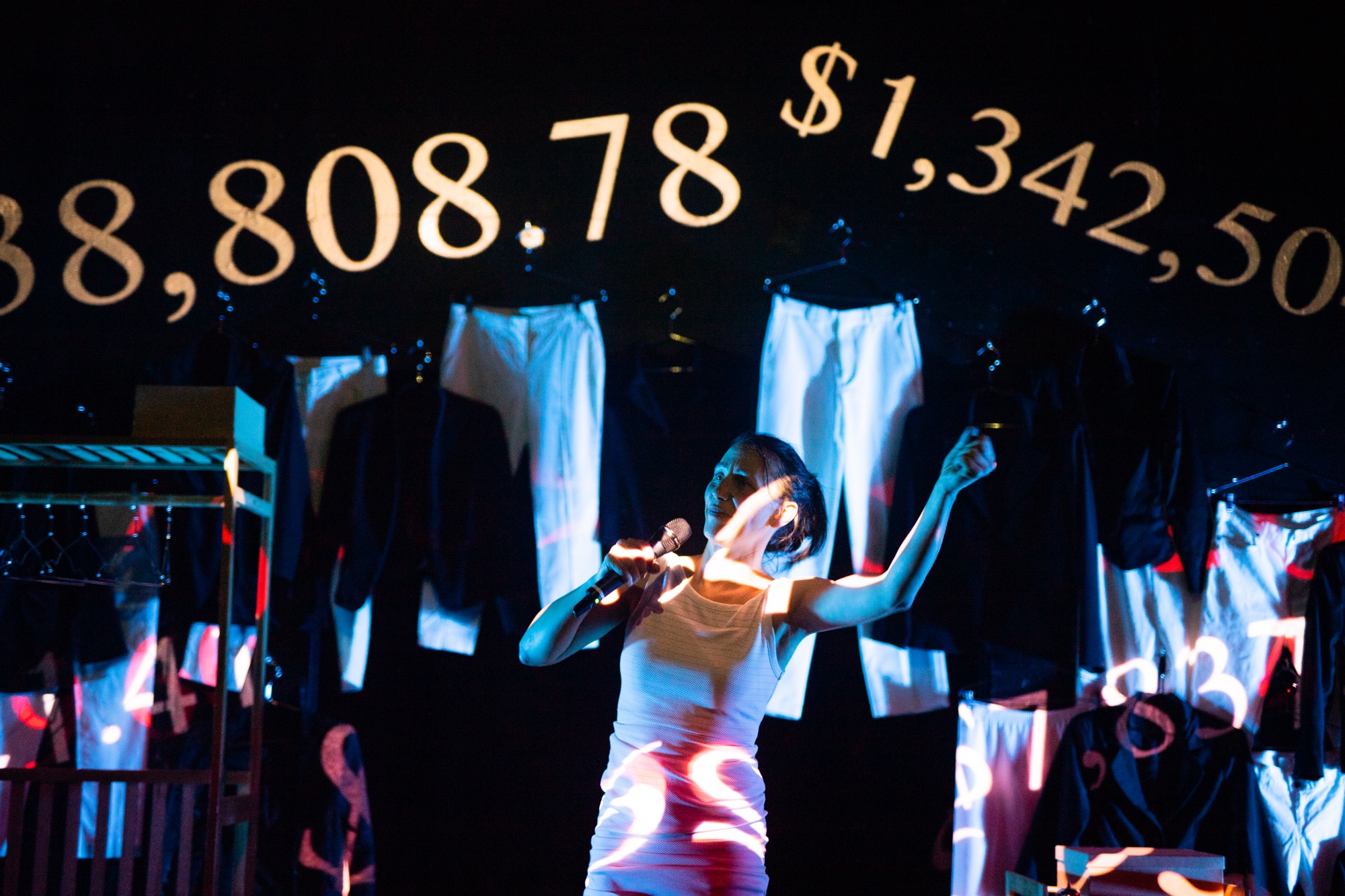Sacha Copland’s Java Dance Theatre is currently bringing its new work Anatomy for Accountants to the international Edinburgh Fringe stage.
Java is known for bringing cutting-edge works to audiences far and wide whether from its home in New Zealand, or sell-out shows at Fringe.
We caught up with Sacha to learn more about Anatomy for Accountants.
Q: Hi Sacha. You’re in the middle of performing your dance theatre show, Anatomy for Accountants, at the 2024 Edinburgh Festival Fringe. Can you tell us a little about it, and you?
I’m Sacha Copland of Java Dance Theatre. I’m a 42 year old choreographer from New Zealand. I live with my nieces and I have danced all over the world on a moving bus. As the choreographer and performer of Anatomy for Accountants, this show sees me open up my life for dissection in the quest to try and find out how much I am worth.
In the show, we mix storytelling, dance, live music (performed by Tristan Carter, who also plays the discerning role of ‘Chief Financial Officer’ alongside me) and joyful, hilarious, dancing nudity. The show is a love letter to the body with all its beauty, scars, muscles, power, vulnerability, history and hilarity – a look at the price of every part of my body (the ‘assets’), all of my flaws, and what I owe the future (the ‘liabilities’). It’s strangely fun and light for a sometimes serious work, and I’m excited to be performing it in Scotland.
Q: Can you talk about some of the creative team involved?
Tristan Carter is a sought after violinist who can play an outrageous number of genres. He has the hands of a musician, the heart of an actor, and the head of a Chief Financial Officer. As a performer, choreographer, and creative, I have worked with Tristan for 10 years – but this is the first show we have made as a duo, with dramaturgy by Sameena Zehra. I have run Java Dance Theatre for 20 years and toured all over the world with immersive, tactile, and interactive dance theatre.
Making a show with multiple influences – here being dance, with physical theatre and music – can be a complex journey. How did you come up with the show’s name, and why do you think this topic is important to discuss through the show?
The show is a playful, personal exploration of the human body – so ‘anatomy’ had to be in there somewhere! Bodies are wildly inspiring, especially when combined with stories from our lives. I love watching people. I love and detest analysing the systems we live in; my favourite thing is to try and magnify the things that, despite being there, we try to ignore. We live in a world based on infinite growth, a world that constantly demands more. Our bodies and our time on earth are finite; we begin and end.

Through Anatomy for Accountants, I hope that audiences gain a new appreciation of their own body and the outrageous wonder of it in this strange landscape – all the 7 trillion tingling, beautiful nerves. The show gives space for the audience to have big feelings. Sometimes, something in the air changes – the whole space is charged and people lean forward, draw in their breath, and just suspend. The body is an important topic to talk about, and I love this shared state of being. It sounds so obvious, but I think it’s because everyone has a body.
Q: What can the general arts and performance community do to get more people involved in their specific disciplines, in dance for example?
I think deep collaboration gets people involved: it avoids creating a silo, which is a dangerous thing and only becomes more dangerous by the second. I would get rid of specific disciplines completely. I don’t think dance and music have ever been separate, or theatre. It’s all about inviting people to be part of something that’s important, but in their own unique and personal way. The arts landscape in New Zealand, where I am from, is amazing – especially the explosion of M?ori work at the moment! I love how cross-artform New Zealand work is. As a creative community, we love to experiment; it’s amazing being part of the multi-generational tapestry of artists here.
Book here to see Anatomy for Accountants.
